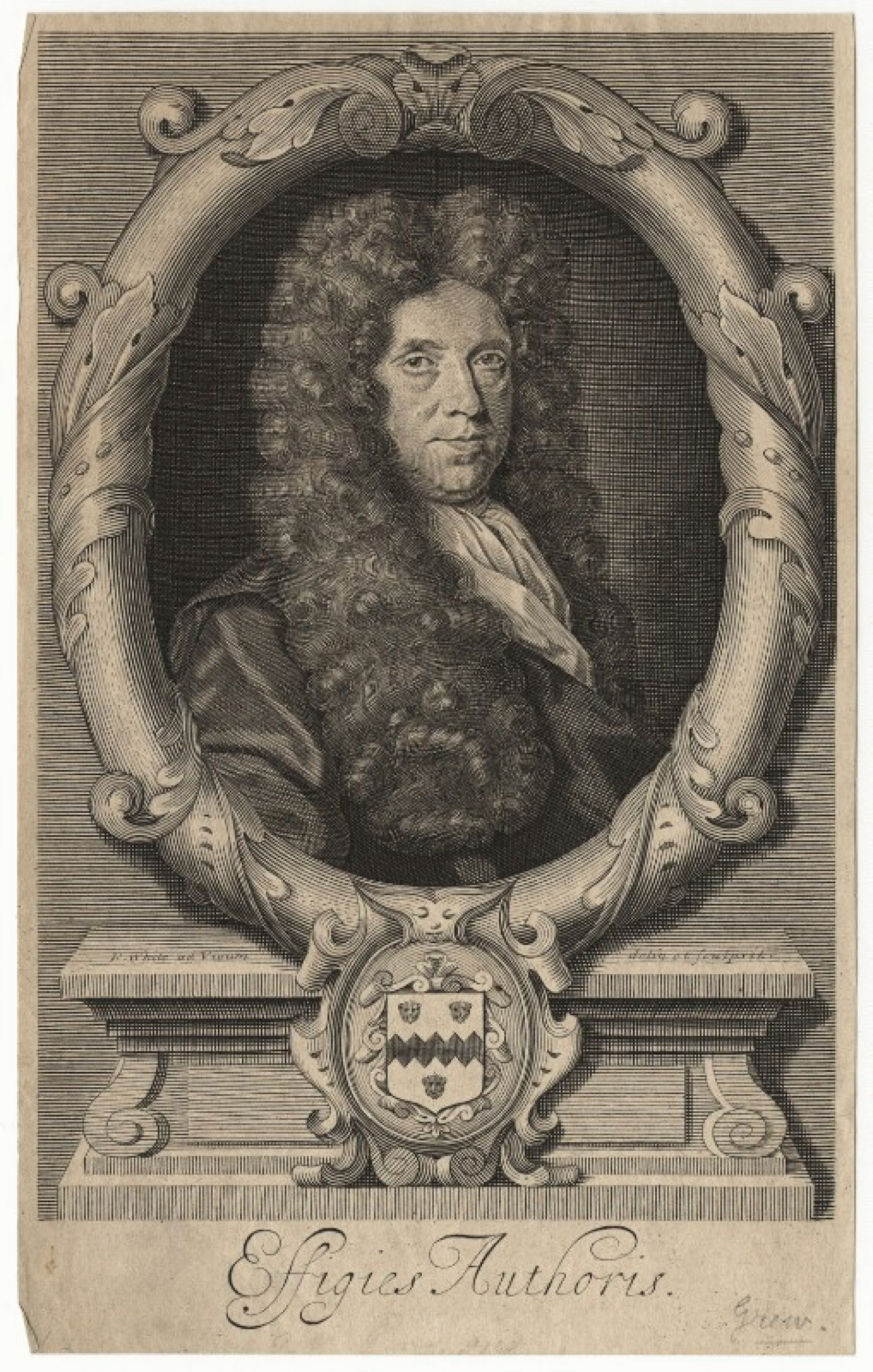Conferenza
Christoffer Basse Eriksen: Nehemiah Grew and the Making of the "Anatomy of Plants" (1682)

Nehemiah Grew by Robert White (1701). (c) National Portrait Gallery, London
Who was Nehemiah Grew? Born in 1641 to a Presbyterian preacher, educated in Medicine first at Cambridge and then at Leiden, the arch of Grew’s career takes us through many of the arenas in which seventeenth-century intellectual life played out: from the physician’s room, where Grew saw to his patients as a medical doctor, to the Royal Society’s meetings at Gresham College, where he delivered his lectures on plant anatomy, to the ‘back offices’ of the Society’s repository, where he compiled its first museum catalogue, and back to his study, where he drew out plans for the improvement of England’s economy, corresponded with plant-collectors, and wrote a treatise on the reasonableness of Christianity. In his lecture, Christoffer Basse Eriksen will introduce the fascinating life of Nehemiah Grew, while drawing attention to the available sources through which we have access to it.
Speaker: Christoffer Basse Eriksen, Ph.D., Visiting Scholar, Department of History, Humboldt-Universität zu Berlin
Respondent: Anna Marie Roos, University of Lincoln
Panel discussion: Fabrizio Baldassarri, Ca' Foscari Venice/Indiana University Bloomington Justin Begley, Ludwig-Maximilians-Universität München Oana Matei, Vasile Goldis Western University of Arad/University of Bucharest Justin Niermeier-Dohoney, MPI für Wissenschaftsgeschichte, Berlin Anna Marie Roos, University of Lincoln
Moderation: Pamela Mackenzie, 4A_Lab Doctoral Fellow, Kunsthistorisches Institut in Florenz – MPI
Registration:
This lecture is public and will be conducted in a hybrid format. Attendance to the lecture is open to the public via Zoom only.
To take part to the event via Zoom, please register at 4a_lab@khi.fi.it.
The lecture is part of the workshop “The Making of the Anatomy of Plants (1682): Nehemiah Grew and the World of Early Modern Natural History,” organized by Pamela Mackenzie and Christoffer Basse Eriksen in collaboration with Hannah Baader. The workshop, which will take place in Berlin on March 9-10, 2022 is organized in the framework of a larger project on the making of Nehemiah Grew’s The Anatomy of Plants, in collaboration with the Research and Fellowship Program 4A_Lab: Art Histories, Archaeologies, Anthropologies, Aesthetics.
Further information about the project and workshop can be found in the workshop program.
Please note: the other events in the workshop are not open to the public!
Christoffer Basse Eriksen studies the History of Early Modern Science and Medicine. He is working on a two-year postdoctoral project on the eighteenth-century discovery of insect pollination funded by the Independent Research Fund Denmark and based at Humboldt Universität zu Berlin. Before that, he completed his first postdoc at the Department of History and Philosophy of Science, University of Cambridge (2019-2022). He is currently finishing his first monograph, Scaling Science, which tells the story of how seventeenth-century anatomists and botanists picked up the microscope to study the problem of generation, and how this produced a new science of scale. Christoffer received his Ph.D. in History of Ideas from Aarhus University in 2018.
Pamela Mackenzie is a Ph.D. candidate at the University of British Columbia (Department of Art History, Visual Art and Theory) and a Doctoral Fellow in the interdisciplinary programme 4A Laboratory: Art Histories, Archaeologies, Anthropologies, Aesthetics. She is working towards the completion of her dissertation on Microscope/Macrocosm: Early Modern Technology, Visualization and Representations of Nature. Her work explores visual epistemology, technologies of vision, and representations of nature in seventeenth-century scientific illustrations. She previously held a predoctoral position in Sietske Fransen’s research group Visualizing Science in Media Revolutions at the Bibliotheca Hertziana – Max Planck Institute for Art History (2019-2021). In the spring of 2022, she was a Dibner Research Fellow in the History of Science and Technology at the Huntington Library. She was also a research fellow at the Royal Society of London as a Lisa Jardine grant awardee and a visiting researcher at Lincoln University's School of History and Heritage under the supervision of Dr. Anna Marie Roos. Her work is additionally supported through the Social Sciences and Humanities Research Council of Canada (SSHRC) and The Sansom Ideas Foundation.
Anna Marie Roos is internationally recognised for her scholarship on the history of the Royal Society, the development of scientific illustration, and the evolution of the early science museum and its ‘publics.’ Roos also consults for professional taxonomists, her scientific and historical work featured in Nature News, Wellcome History, National Geographic, The Guardian and The New York Times. Author of 8 books and editions, and over 30 articles, Roos’s work analyses the development of early scientific method and fieldwork, challenging current assumptions about the arts-science divide. As editor-in-chief of Notes and Records: the Royal Society Journal of the History of Science and co-creator of the Lisa Jardine Grant Scheme in the Royal Society, her role is to connect the work of Fellows of the Royal Society, historians of science, and more largely, to promote interdisciplinary work in science studies.
Scarica
09 marzo 2022, ore 17:00
Hybrid lecture
Venue: Lecture room, Kunstgewerbemuseum, KulturforumPotsdamer Platz, Matthäikirchplatz 4-6, 10785 Berlin / Online via ZOOM
To take part to the event via ZOOM, please register at 4a_lab@khi.fi.it.
Avviso
Questo evento viene documentato fotograficamente e/o attraverso riprese video. Qualora non dovesse essere d’accordo con l’utilizzo di immagini in cui potrebbe essere riconoscibile, da parte del Kunsthistorisches Institut in Florenz a scopo di documentazione degli eventi e di pubbliche relazioni (p.e. social media) la preghiamo gentilmente di comunicarcelo.


